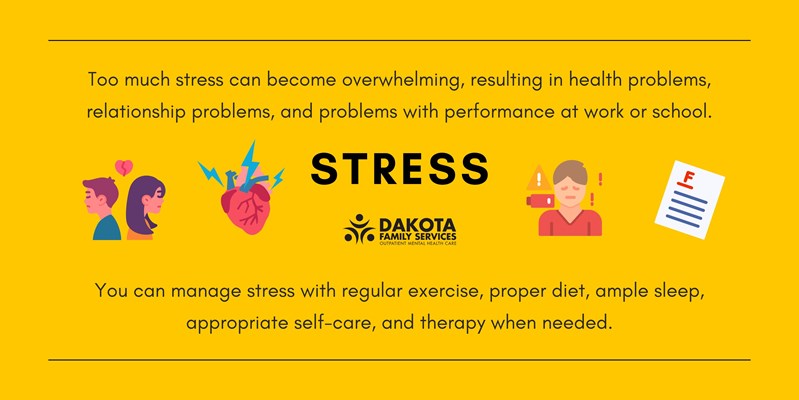Stress
Definition
Stress is our body's natural response to situations that become a challenge or threat. Whether it's caused by physical or emotional factors, stress can be helpful when it motivates you to rise to the challenge. But when stress becomes overwhelming, it can cause health problems, interfere with your relationships, and have a negative impact on work performance. Stress can often be controlled with exercise, proper diet, sleep, and relaxation techniques. If stress gets to be too much, consider reaching out to a mental health professional.
Stress is also referred to by the following terms:
- Mental strain
- Distress
- Anxiety
- Worry
Key Things to Know About Stress
- Although some stress is normal and helps motivate people, intense stress can lead to serious health problems such as heart disease, depression, and anxiety disorders.
- Stress can often be controlled by exercise, proper diet, sleep, and relaxation techniques.
- When stress becomes overwhelming and you're unable to cope with it on your own, consider seeking professional help.
- Even small improvements can add up to big lifestyle changes that help you create a healthy life balance.
Stress & Mental Health Wellness
Regular stress management can prevent, treat, and manage mental illness. Stress tends to be a major factor in things like depression, anxiety, trauma disorders, and others.
Common Misconceptions About Stress
- All stress is bad (Distress vs Eustress) - Distress is stress that negatively affects you while eustress is stress that has a positive impact. Examples could be distress as death of a loved one and eustress as stress that motivates you to complete necessary tasks.
- Often people think that being stressed is a sign of working hard rather than a sign that you aren’t managing your stress well.
- Stress management is often thought of in terms of vacations or taking time off work. Although this is also true, it can be managed through small day-to-day choices as well.
More Resources:
- Relaxation Techniques to Reduce Stress (Podcast Episode)
- Stress and Anxiety Management for College Students (Podcast Episode)
- How To Deal With Anxiety (Blog Article)
- Breathing Exercises for Beginners (Blog Article)


